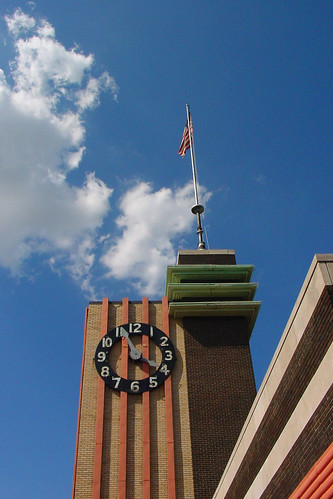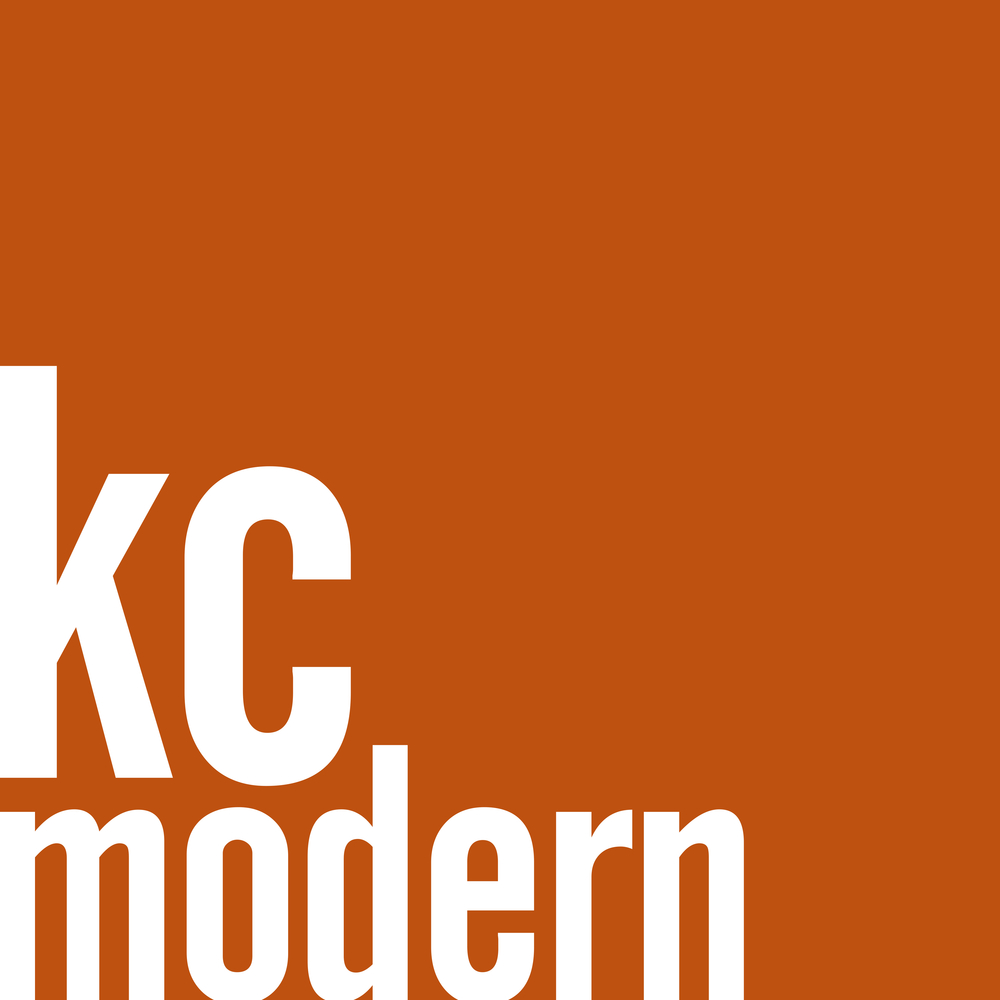 Name: Katz Drug
Name: Katz Drug(most recently Osco Drug, before that it was a Skaggs Drug)
Architect: Clarence Kivett
(Later a Partner in the firm, Kivett and Myers)
Year Designed: 1934
Builder: Unknown
Year Built: early 1934
Location: Main Street & Westport Road, Kansas City, MO
Type: Commercial Retail
Style: Streamline Moderne, Art Deco
Status: Unoccupied, For Sale and Endangered
Photo by: Robert McLaughlin
The premiere Katz Drug Store (#9) location at Main and Westport Road was about to be the setting for the latest crime against Modern Architecture in Kansas City. The recent purchase of the Osco Drug chain by CVS Drugs, and the proximity to another CVS drugstore, had left that location's future in question.
The midtown location was one of the first buildings designed by Clarence Kivett in 1934 and it became the first in long line of buildings designed by Kivett and Myers for the Katz Drug chain, owned by Kivett's uncles, Isaac and Michael Katz. It seems that particular building has received a stay of execution as CVS has not sold the building yet and it has recently been successfully added to the U.S. National Register of Historic Landmarks.
This building is a wonderful demonstration of the late Streamline Moderne Style. Alan Hess, architect and author of Googie called it a classic example of "building as billboard," with its masonry and neon clock pylon marking Main Street for miles in either direction.
